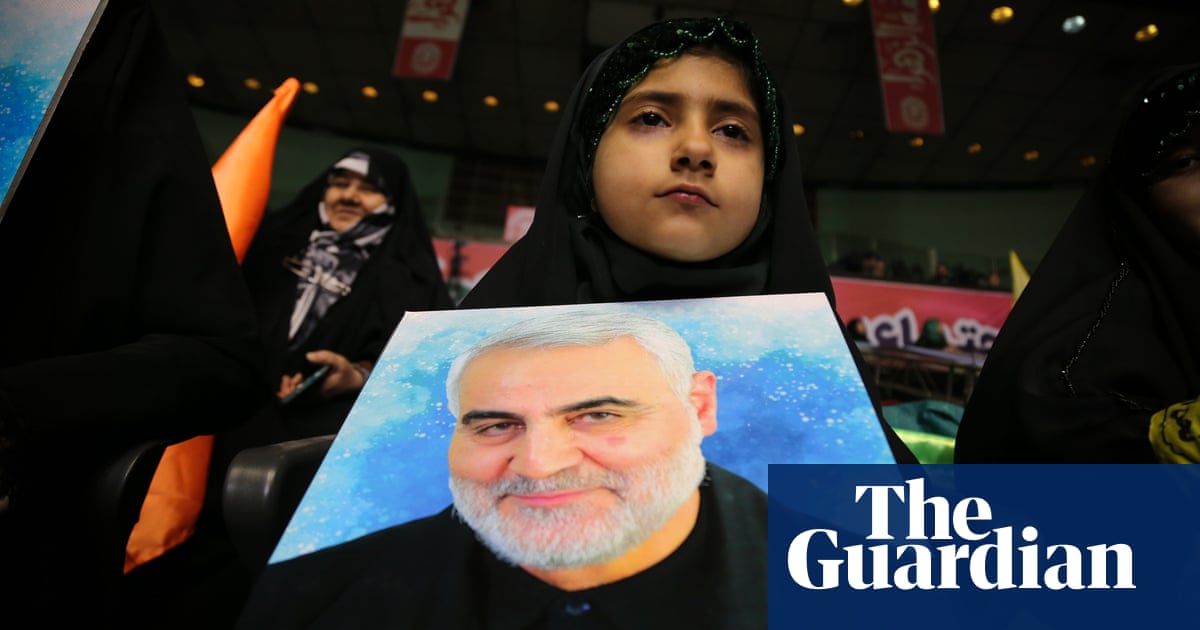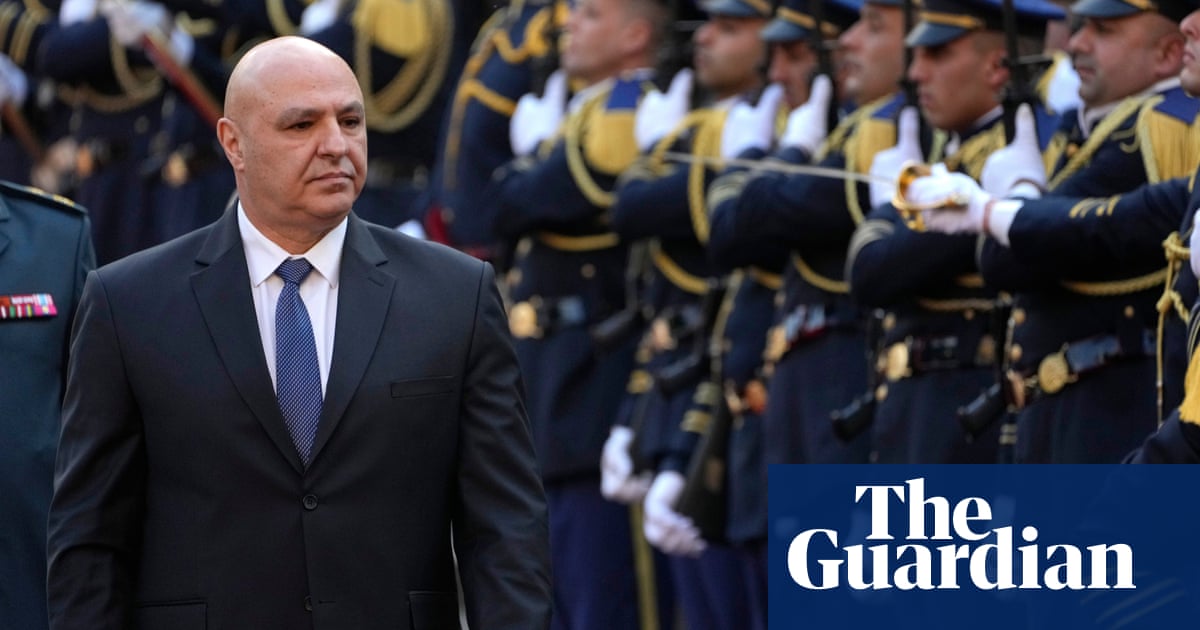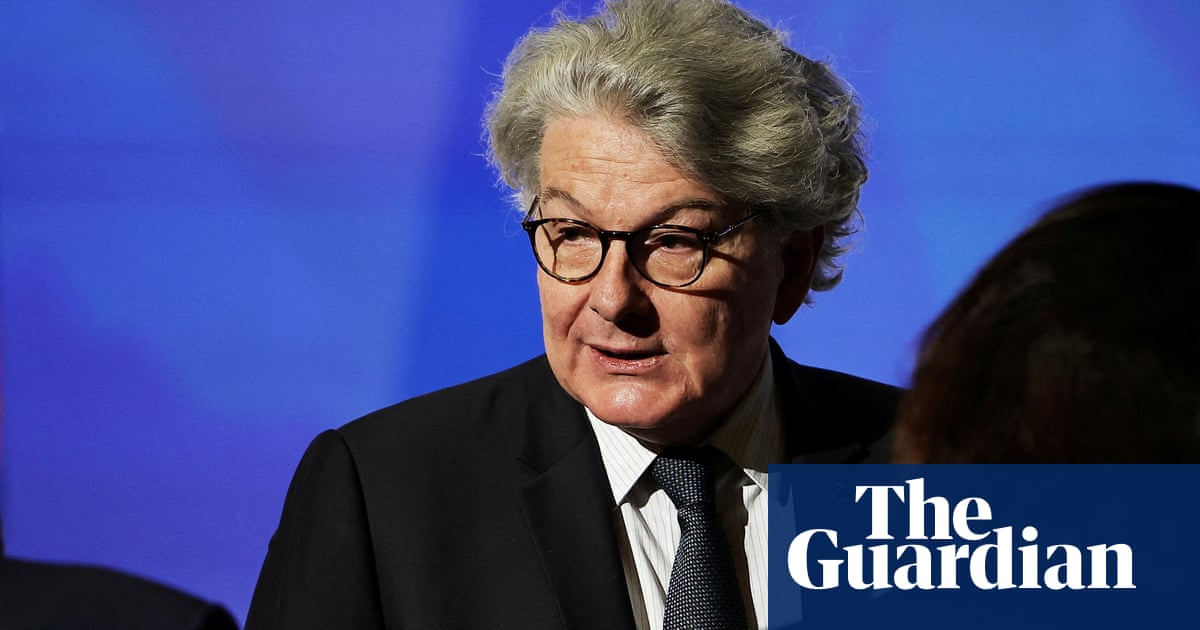Donald Trump’s decision to sanction the assassination of an elite Iranian commander triggered a chain of events that has revealed Iran as a paper tiger and led to the overthrow of Basher al-Assad, a former UK security minister has said.
Tom Tugendhat, now on the Conservative backbenches and intending to focus on foreign policy, also predicted the Iranian regime would collapse in a few years. He said that if handled properly, Syria could become the economic powerhouse of the Middle East within a decade.
It is unusual for a former British cabinet minister to lavish praise on what is seen by some as such a controversial act bordering on an extrajudicial killing.
His remarks were made shortly before the fifth anniversary of Qassem Suleimani’s killing in Baghdad, an anniversary that led the Iranian supreme leader, Ayatollah Ali Khamenei, again to claim in a speech in Tehran that the Syrian leadership would be forced to withdraw as “youth rises up” to defeat the newly installed Sunni regime.
Suleimani was instrumental in using Syria and Iraq as a base from which to drive back the Sunni Islamist group Islamic State and to entrench Iranian interests in both countries.
Tugendhat argued on the Conflicted podcast that Suleimani’s death in a drone attack had proved to be a turning point.
He said: “I’m always struck by how some people can be much more seminal, much more key, pivotal to an organisation than you realise at the time. The reality is when Qassem Suleimani was killed in January 2020, he held in his head all the relationships, all the deals for everybody around the region.
“He was replaced, but he wasn’t really, because nobody could replace the personal 20-year relationships that he held. That’s really the unpicking. So I have to say, I know it’s not popular, but President Trump, effectively, was the trigger that began the fall of the Assad regime.”
Tugendhat, a former chair of the foreign affairs select committee, also saw a crisis inside the Iranian Revolutionary Guard Corps (IRGC) due to the loss of Syria. He said: “Young members of the IRGC are saying two things. One, the old guard are corrupt and incompetent. That’s why Hezbollah has been hung out to dry and defeated. That’s why old allies like Assad have fallen. That’s one thing they’re saying.
“The second thing they’re saying is that they’re hearing rumours, I don’t know how true they are, but they’re hearing rumours that the ayatollah and the government in Tehran wants to talk to the Americans to try and find a way out of this and perhaps hang on. And they’re saying that there’s absolutely no way that anybody can talk to the killers of Qassem Suleimani.
“Now, this means that there is a really big problem within the regime itself, a really big challenge, because actually there’s no way through. These young people, the extremists in the IRGC, so the extremists of the extreme, are trying to hold the regime to a level of purity that is just now completely inconsistent with reality.”
Tugendhat was reflecting on the growing consensus in the reformist government in Tehran that direct talks with Donald Trump over a new nuclear deal should be sought, a belief that is meeting resistance from hardliners.
Tugendhat, an opponent of the initial nuclear deal in 2015 and as a security minister an advocate of proscribing the IRGC, sees the revolution in Syria as a wider turning point.
after newsletter promotion
He said: “Frankly, if we get Syria right in 10 years, Syria could be absolutely not just a pole of stability but a fantastic economic powerhouse in the region, exporting stability and civilisation, as it has done for quite literally tens of thousands of years, to the rest of the world again.
“There are moments like now when the old era is dead, the old illusions are dead, and various things are killing it. And I suspect that the regime in Tehran will be gone in the next few years as well. So I think there’s a real opportunity for freedom to spread and for opportunity to spread.”
At the same time, he said, there were significant dangers in Syria, with the country divided as Kurdish groups and the radical Sunni Islamist group Hayat al-Tahrir Sham (HTS) fight for influence.
Tugendhat accused the west of having no long-term strategy in the Middle East, arguing that the withdrawal from Afghanistan and the failure of Barack Obama to act on his red lines when Assad used chemical weapons in 2013 had given an opportunity for Vladimir Putin to present himself as a reliable strongman.
At various forks in the road, Tugendhat argued, the west “demonstrated weakness, advertised fickleness”.
He said: “Putin is no more constant than we are, but he has the illusion of it. And this is the sort of complete fake strongman theory of life. It’s complete rubbish, of course, but the illusion of it appears real, and that’s enough to have brought certain decisions which have led to mass misery.”
Article by:Source Patrick Wintour Diplomatic editor






















